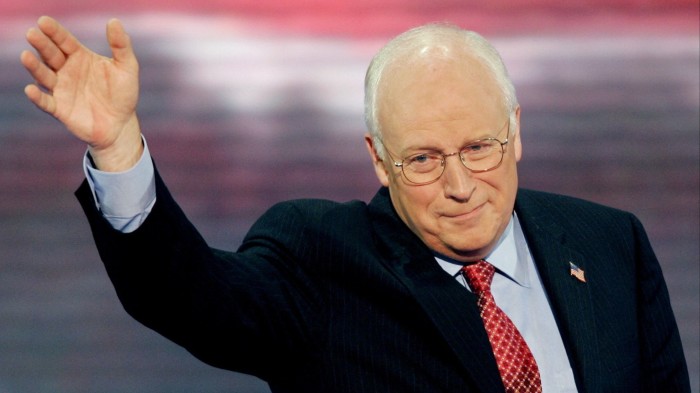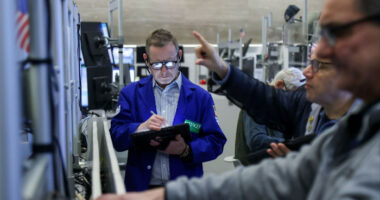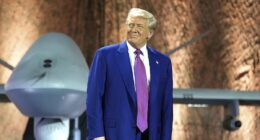Share this @internewscast.com
Subscribe to the White House Watch newsletter at no cost.
Dick Cheney, the former Republican vice-president known for his role in the U.S. military engagements in Afghanistan and Iraq post-September 11, and later a vocal critic of Donald Trump, has passed away at the age of 84, his family has announced.
Cheney held the vice-presidential post under President George W. Bush from 2001 to 2009, concluding a significant political journey that also saw him as White House chief of staff for Gerald Ford and defense secretary for George H.W. Bush.
Renowned for his strong stance on foreign policy and advocacy for American military intervention, Cheney was instrumental in advising President Bush to invade Iraq in 2003. This decision led to a prolonged and expensive conflict in the Middle East, which was later criticized by both Republicans and Democrats as a misjudgment.
Throughout their administration, Cheney’s significant impact on Bush’s policies earned him a reputation as potentially the most influential vice-president in U.S. history. Nevertheless, his clout waned as Bush’s presidency drew to a close.
Following his exit from office in 2009, the influence of Cheney’s faction within the Republican Party diminished as foreign policy isolationists, spearheaded by Donald Trump, began gaining prominence on the political right.

By 2022, Cheney emerged as a staunch critic of the 45th and now 47th US president, particularly after his daughter Liz Cheney, then a congresswoman from Wyoming, co-led a probe into the January 6 2021 riot at the US Capitol.
“There has never been an individual who is a greater threat to our republic than Donald Trump,” Dick Cheney said in an ad supporting his daughter Liz in her doomed re-election bid against a Trump-backed Republican challenger.
“He tried to steal the last election, using lies and violence to keep himself in power after the voters had rejected him,” he added.
His family said on Tuesday that Cheney had died from complications of pneumonia and cardiac and vascular disease on Monday.

“For decades, Dick Cheney served our nation, including as White House Chief of Staff, Wyoming’s Congressman, Secretary of Defense, and vice-president of the United States . . . We are grateful beyond measure for all Dick Cheney did for our country,” the statement said.
Cheney was born in Lincoln, Nebraska, in January 1941 and spent much of his childhood in Casper, Wyoming, where his family had moved.
His career in Washington began during Richard Nixon’s administration in 1969, when he worked alongside Donald Rumsfeld, an ideological twin with similar views on US foreign policy who would serve as defence secretary during the 2001-2009 Bush administration.
Cheney would go on to serve as first deputy White House chief of staff and then chief of staff under Gerald Ford. He moved to Capitol Hill after being elected as a representative from Wyoming, where he would remain during Ronald Reagan’s presidency.

George HW Bush tapped Cheney to be defence secretary, handing him a portfolio that would include a leading role in shaping the first Gulf war in response to Iraq’s invasion of Kuwait.
With Bill Clinton in the White House for most of the 1990s, Cheney moved to the private sector as chief executive of Halliburton, the oil services group.
George W Bush made him a key adviser to his 2000 presidential campaign, charging him with the task of running the search for a vice-presidential nominee. But at the end of the process, Bush decided to select Cheney.









